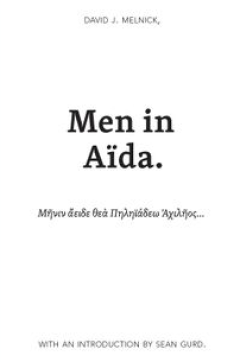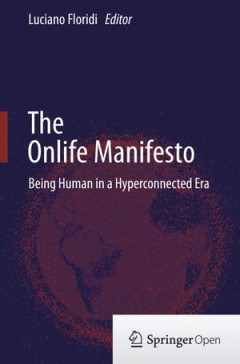Filter by

Men in Aïda
David J. Melnick published the first book of Men in Aida, a homophonic, but also homoeroticized translation of Homer’s epic Iliad, in December 1983 in an edition of 450 at Tuumba Press.
- Edition
- -
- ISBN/ISSN
- 9789491914041
- Collation
- -
- Series Title
- -
- Call Number
- 821

Guide for Small Community Water Suppliers and Local Health Officials: Lead in…
This Guide for Small Community Water Suppliers and Local Health Officials is one of a series produced by the International Water Association's (IWA) Specialist Group on Metals and Related Substances in Drinking Water. It is an abbreviated compilation of the wide range of scientific, engineering, health and operational issues concerned with the control of lead in drinking water in small water su…
- Edition
- -
- ISBN/ISSN
- 9781843393801
- Collation
- -
- Series Title
- -
- Call Number
- -

Memoir American
Babel turns to rumor through the fact of translation, wherein a book is being made and remade from American to French and back again? You will find him through translation like a Being in the Poetry of the Extraterritorial, an un-owned territory which is neither
- Edition
- -
- ISBN/ISSN
- 9780615808628
- Collation
- -
- Series Title
- -
- Call Number
- 821

Green Entrepreneur Handbook: The Guide to Building and Growing a Green and Cl…
Written by a practicing business attorney with startup experience in the environmental and technology sectors, this comprehensive handbook assists entrepreneurs in tackling the wide variety of opportunities to go green. A one-stop resource for entrepreneurs, it helps readers incorporate clean technology, environmental practices, and green business approaches into the work environment. The book …
- Edition
- -
- ISBN/ISSN
- 9781439817315
- Collation
- -
- Series Title
- -
- Call Number
- -

The Matrix of Lyric Transformation Poetic Modes and Self-Presentation in Ear…
Pentasyllabic poetry has been a focus of critical study since the appearance of the earliest works of Chinese literary criticism in the Six Dynasties period.
- Edition
- -
- ISBN/ISSN
- 9780472901449
- Collation
- -
- Series Title
- -
- Call Number
- 821

Green Carbon Part 2: The role of natural forests in carbon storage
This report is the second in a series that examines the role of natural forests and woodlands in the storage of carbon. Understanding the role of natural ecosystems in carbon storage is an important part of solving the climate change problem. This report presents a landscape-wide green carbon account of the ‘Great Western Woodlands’ (GWW), sixteen million hectares of mostly contiguous natur…
- Edition
- -
- ISBN/ISSN
- 9781921666711
- Collation
- -
- Series Title
- -
- Call Number
- -

Green Carbon Part 1: The role of natural forests in carbon storage
The colour of carbon matters. Green carbon is the carbon stored in the plants and soil of natural ecosystems and is a vital part of the global carbon cycle. This report is the first in a series that examines the role of natural forests in the storage of carbon, the impacts of human land use activities, and the implications for climate change policy nationally and internationally. REDD (“reduc…
- Edition
- -
- ISBN/ISSN
- 9781921313882
- Collation
- -
- Series Title
- -
- Call Number
- -

M. Iu. Lermontov. His Life and Work
Displaying his characteristic balance between sympathy and detachment, Vickery has first provided a concise, but richly detailed account of Lermontov's brief and tragic life.
- Edition
- -
- ISBN/ISSN
- 9783876908137
- Collation
- -
- Series Title
- -
- Call Number
- 821

Grappling with the Bomb: Britain’s Pacific H-bomb tests
Grappling with the Bomb is a history of Britain’s 1950s program to test the hydrogen bomb, code name Operation Grapple. In 1957–58, nine atmospheric nuclear tests were held at Malden Island and Christmas Island—today, part of the Pacific nation of Kiribati. Nearly 14,000 troops travelled to the central Pacific for the UK nuclear testing program—many are still living with the health and …
- Edition
- -
- ISBN/ISSN
- 9781760461379
- Collation
- -
- Series Title
- -
- Call Number
- -

Global Water: Issues and Insights
This book brings together some of the world’s leading water researchers with an especially written collection of chapters on: water economics; transboundary water; water and development; water and energy; and water concepts.
- Edition
- -
- ISBN/ISSN
- 9781925021677
- Collation
- -
- Series Title
- -
- Call Number
- -
 Computer Science, Information & General Works
Computer Science, Information & General Works  Philosophy & Psychology
Philosophy & Psychology  Religion
Religion  Social Sciences
Social Sciences  Language
Language  Pure Science
Pure Science  Applied Sciences
Applied Sciences  Art & Recreation
Art & Recreation  Literature
Literature  History & Geography
History & Geography